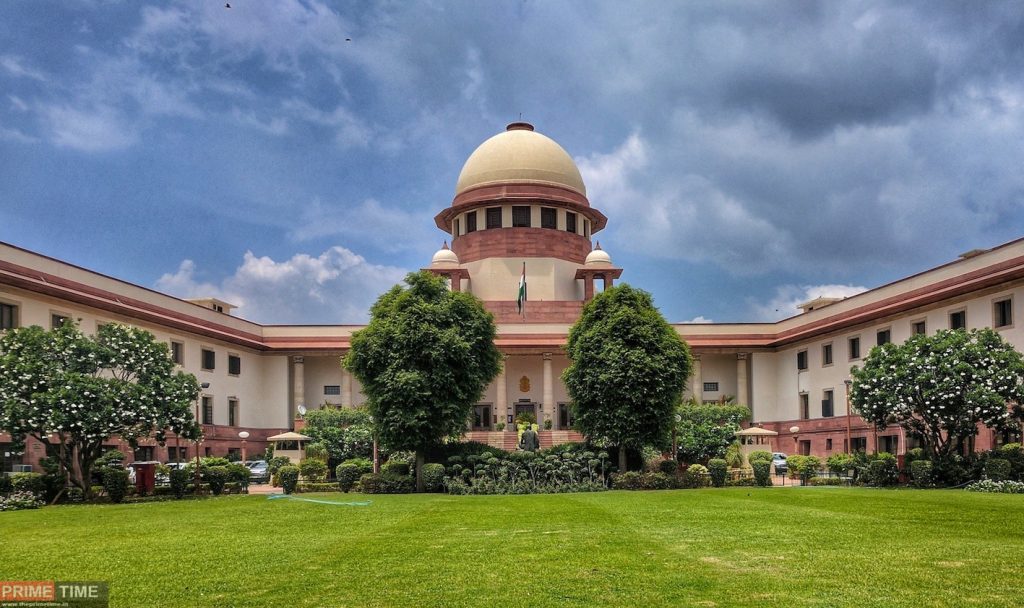The elite in Delhi and Chandigarh read the same publications. The demolition spree at Nuh, where Muslim-owned businesses were being razed as retaliation for supposedly starting the recent disturbances there, was nevertheless stopped by two justices from the Punjab and Haryana High Court, G S Sandhawalia and H R Jeewan, who took suo motu notice of media reports. The presiding justices questioned whether the destruction amounted to “ethnic cleansing.”
Ironically, their involvement highlights why Muslims feel let down by the Supreme Court. Mohammad Adeeb, a former member of the Rajya Sabha, filed a case with the Supreme Court accusing the director-general of police and the chief secretary of Haryana of disrespecting the high court. Adeeb’s plea was prompted by the State’s inactivity against Hindu nationalist organisations that frequently interfered with Muslims’ Friday prayers in Gurugram. The Supreme Court ordered the administration to take punishment against people who encourage lynching in the Tehseen Poonawalla case, yet the administration failed to do so.
Adeeb’s petition, which was submitted in January 2021, has not yet been heard. Recently, a mosque in Gurugram was set on fire, and the naib imam was murdered.
The 2019 Supreme Court ruling in the Ayodhya title claim has Muslims more angry than anything else. The Babri Masjid was erected atop a Hindu temple that had probably been abandoned 400 years earlier, the court said, and there is no evidence to support this claim. These findings proved that the deadly Ayodhya campaign of Hindutva was founded on a falsehood.
Nevertheless, the Supreme Court gave the Babri Masjid site to those who wanted to destroy it, stating that “there is evidence on a preponderance of probabilities to establish worship by the Hindus” before 1857 as opposed to Muslims. However, in place of the Babri Masjid, the court gave Muslims five acres of land.
The Ram Temple is scheduled to open in January of next year. There are still plans for the projected mosque at Dhannipur, where the five acres were given.
The Places of Worship Act, 1991, was referred to as a “legislative instrument designed to protect the secular features of the Indian polity” in the Ayodhya judgement. This Act maintains all houses of worship’s religious identity as of August 15, 1947. Muslims used this clause to argue against a civil court ruling authorising a study of Varanasi’s Gyanvapi mosque.
Justice D. Y. Chandrachud of the Supreme Court, however, stated that the Act does not prohibit the “ascertainment of the religious character of a place of worship,” and so the survey was not halted. What use is the determination if the mosque cannot be transferred?
Muslims will be under further pressure as a result of the poll to give up control of the Gyanvapi mosque.
In 2019, the Union government passed a law that mandates three years in jail for males who divorce their spouses by saying talaq three times in a row. In 2017, this type of divorce became illegal.
Are non-Muslim males who divorce their spouses incorrectly put in prison for doing so? The petitions objecting to the triple talaq’s criminalization have not yet been heard by the Supreme Court.
Three of the student leaders charged under the Unlawful Activities (Prevention) Act with allegedly inciting the 2020 Delhi riots were granted bail by the Delhi High Court in a persuasive ruling. The ruling, according to the Supreme Court, cannot be used as a precedent and must be carefully considered because of its potential effects on the entire country. Bright Muslim student leaders are rotting in jail as a result of the lack of examination, though.
The Karnataka High Court’s decision to maintain the state government’s order prohibiting Muslim women from donning the hijab in schools was decided on a divided vote by the Supreme Court. A three-member bench that has not yet been assembled must now assess the subject. The hijab is still prohibited from being worn.
The Supreme Court has made gratuitous mention of a single civil code frequently, as this idea is now popular. Here are two instances:
In the Sarla Mudgal case from 1995, three women said that their husbands had deserted them after converting to Islam and marrying Hindu women who had also converted to Islam. According to the court’s decision, marriages under Hindu Personal Law continue even if one spouse converts to a different religion. The judges questioned why a UCC had not been created despite the fact that 82% of Indians live under one, even though it was not relevant to the case.
The idea that Hindu personal law is uniform is untrue. The Hindu Succession Act, 1955, was amended in 2005, and the Supreme Court was urged to decide whether that alteration may be implemented retroactively in the 2015 Phulavati vs. Prakash case. In a joint family property, the amendment provided women with a portion that was equal to that of males. The court ruled that Phulavati cannot receive an equitable share because her involvement in the property issue predates 2005. The judges criticised the Muslim Personal Law despite the fact that the case had nothing to do with Muslims and requested that a public interest lawsuit against the UCC be launched.
Due to all of these factors, whenever the Supreme Court handles a case regarding the rights of Muslims in the community, they anticipate losing. I’ll let the readers come up with their own summary of this essay.
